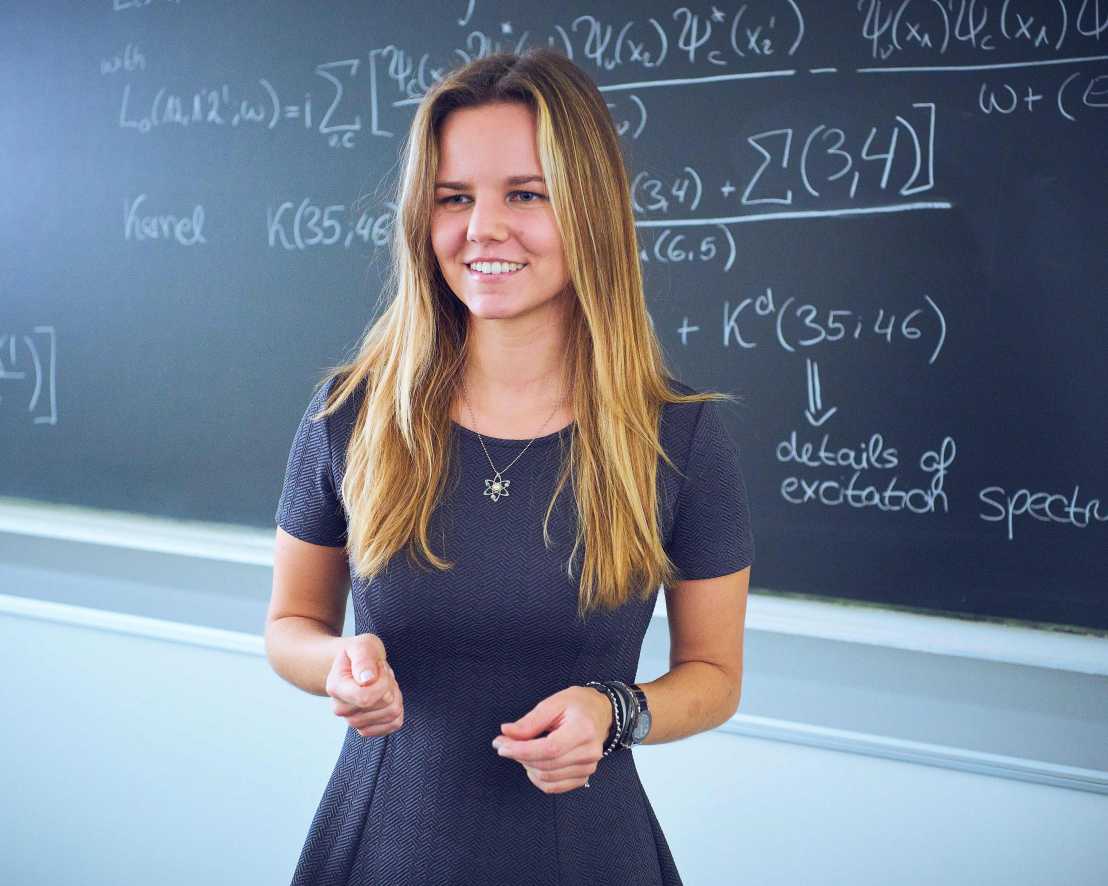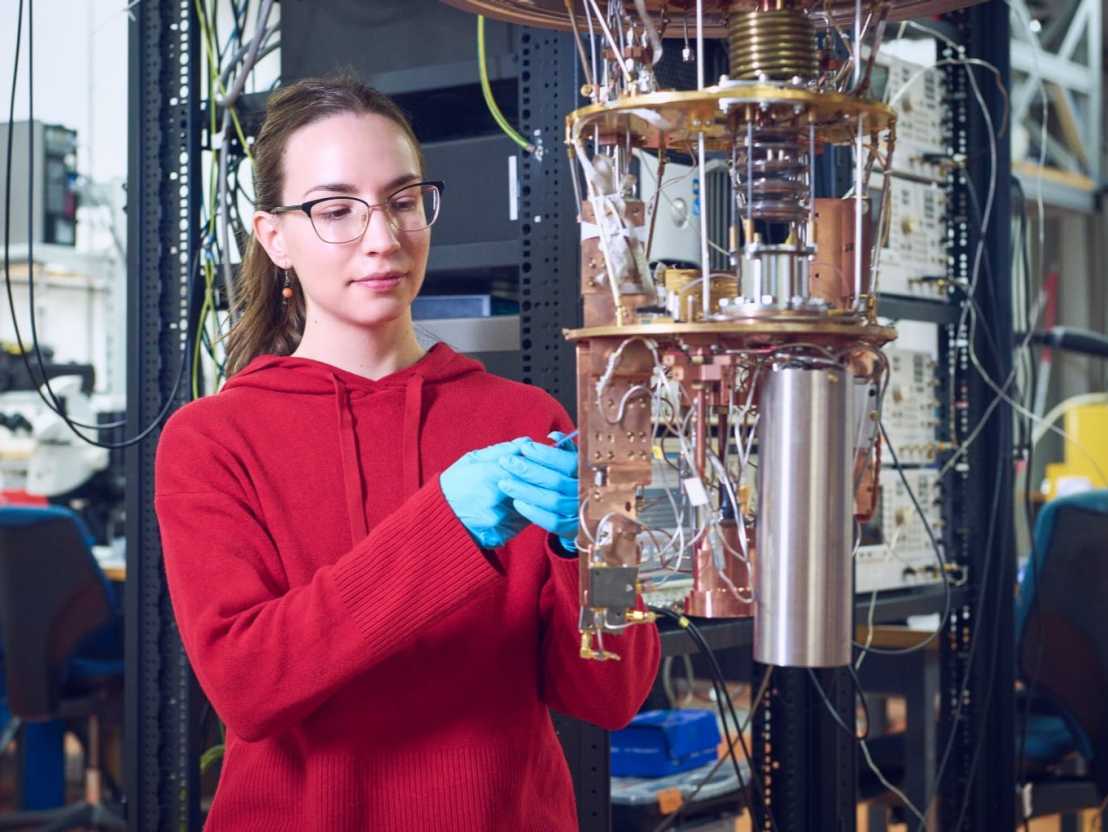Awardees introduce themselves
What does 'quantum' mean to you? We put this question to the recipients of the 2023 INSPIRE Potentials Awards, Lisa Appel, Petia Arabadjieva, and Raquel García-Bellés.
We also asked them to introduce themselves and write about their motivations for specializing in quantum science and technology, the topics of their Master's theses, and any experiences they might want to share with 'younger' students embarking on their academic journey.
Lisa Appel

"I am Lisa, a Physics Master's student at ETH.
As the final part of my studies, I am currently conducting the Master’s thesis in the Computational Nanoelectronics group of Prof. Mathieu Luisier of the Quantum Center at ETH. My project combines quantum physics, solid-state physics and quantum optics, operating at the edge between theory and simulation, with the aim to model the dynamics of photo-excited electrons, holes and their combined quasi-particle excitons in heterostructures of 2D materials.
The big goal of the thesis addresses the societal challenge of discovering novel renewable-energy sources to satisfy the worldwide growing energy demand. Designing innovative photovoltaic cells based on 2D heterostructures resonates with my personal life-philosophy of making the best possible impact on my environment. The direct influence of my work in shaping the layout of next-generation nanoelectronic devices fills me with curiosity and enthusiasm throughout the challenging day-to-day research work.
For me, ‘quantum’ is… a fascinating perspective on the world that leads to a deeper understanding of fundamental physics."
Petia Arabadjieva

"I am Petia, and am currently pursuing my Master’s thesis in the Quantum Information Theory group of Prof. Renato Renner at ETH on the topic of proofs of quantumness.
I chose to study physics because it provides a good basis for entering a great variety of exciting fields. I was most strongly drawn to quantum technology because, despite some theoretical evidence of its transformative potential, there is still so much left to figure out. My goal is to deepen our understanding of the fundamental differences between quantum and classical computation, which is why I chose to conduct my Master’s thesis in the Quantum Information Theory group.
The biggest challenge I faced during my studies was keeping my self-doubt in check. At any given moment, no previous achievement could convince me that I was good enough to hit my next target, which at times deterred me from even trying. Over time, I learned to cope with my doubts by putting aside the question of estimating success probabilities before committing to a goal, and instead just getting to work and giving it my best, whatever that is. This mindset has never let me down so far. Another piece of advice I like to give is not to be afraid of changing plans if it feels right. Surprising yourself is one of the most wonderful things in life!
For me, ‘quantum’ is… embracing the unknown and uncertain and trusting that it will lead you somewhere extraordinary."
Raquel García-Bellés

"I am Raquel, from Spain, and I completed my MSc in Quantum Engineering here at ETH.
I recently joined the Hybrid Quantum Systems group of Prof. Yiwen Chu to pursue a PhD in quantum acoustics. In this exciting field, we tame the interactions between photons and phonons by coupling superconducting circuits and mechanical resonators. Previously, I gained a lot of experience in the fabrication and characterization of Josephson junctions and superconducting circuits during my Master's thesis in the Quantum Device Lab of Prof. Andreas Wallraff.
My motivation for choosing this career path is to contribute to developing useful quantum devices that could help advance current technologies. However, when I look back on my journey, I am always surprised that I ended up here. I grew up in a small village where my mom worked in a factory and my dad was a construction worker. As a teen, I was very motivated to become a medical doctor. But late in high school, my maths teachers introduced me to mathematics contests. I loved the challenge of solving problems following small logical steps. So, guided by my gut feeling, I finally chose a double degree in physics and mathematics. I slowly realized during my studies that I was not so interested in fundamental problems, but that I wanted to use my knowledge to build things with my own hands. That's where quantum engineering came in. Following my own experience, I would encourage younger students to embrace changes since they are an excellent opportunity to speed up growth.
For me, ‘quantum’ is… an exciting field with a lot of potential."